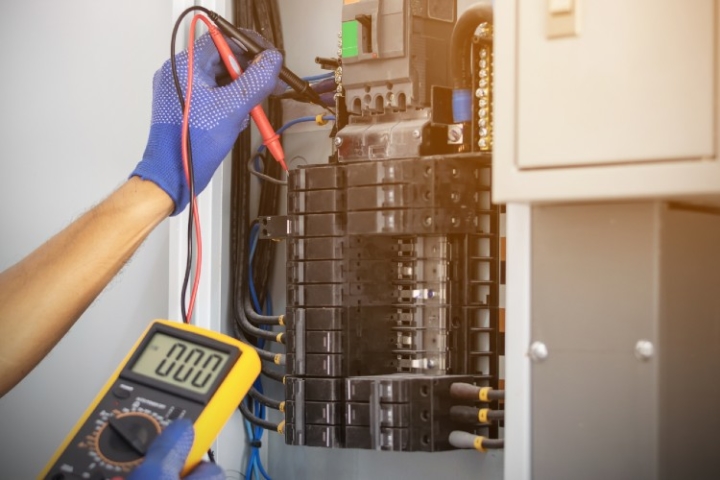How Do House Auctions Work? A Complete Guide house auctions have long been a part of the real estate landscape, offering a unique way to purchase properties. Whether you are a seasoned investor, a first-time homebuyer, or someone simply exploring new avenues for purchasing property, understanding how house auctions work can give you a significant advantage. House auctions offer a transparent, competitive, and often fast-paced environment, allowing buyers to secure properties with potentially fewer hurdles than traditional home-buying methods.
In this comprehensive guide, we will take you through every step of the house auction process, from the initial research and registration to the final bid. We’ll explore the different types of house auctions, what to expect on auction day, and how to ensure you are prepared to win your dream home. By the end, you will have a thorough understanding of how house auctions work, as well as the strategies that can help you succeed in this exciting real estate market.

What is a House Auction?
At its core, a house auction is a public event where properties are sold to the highest bidder. The house auction process typically takes place at a physical location or online, and it offers buyers the opportunity to compete for properties in a transparent, open, and competitive manner. This contrasts with traditional real estate transactions, where buyers negotiate behind closed doors and may face long waiting periods.
The Appeal of House Auctions
House auctions have a distinctive appeal because of the competitive nature and the transparency they provide. Here are some key benefits of purchasing a property through a house auction:
- Speed and Efficiency: Auctions offer a fast-paced environment. If you win the bid, the transaction is typically completed quickly, usually within a few weeks.
- Transparency: Bidding takes place in front of everyone, so you can see exactly where the price is headed and what other buyers are offering. There’s no room for hidden negotiations or surprises.
- Potential Bargains: Sometimes, you can secure a property at a price lower than its market value, especially if the competition is light or if there is little demand for the property.
With that said, the house auction process is not without its challenges. The fast pace and public nature of auctions can lead to emotional bidding, which can sometimes drive the price higher than expected. However, being prepared and knowing how to approach house auctions can mitigate these risks.
Step 1: Do Your Research
How to Research a Property Before the Auction
- Property Details: Start by reviewing the auction listing, which should provide information about the property’s size, condition, location, and any legal details or restrictions that may apply. Make sure the auction house or real estate agent offers full disclosure about the property.
- Inspect the Property: Whenever possible, visit the property in person to assess its condition. Attend open house viewings or arrange a private inspection if available. Pay attention to structural issues, plumbing, electrical systems, and overall upkeep.
- Market Value: Understand the local real estate market by researching comparable properties (comps) in the area. This will help you assess whether the asking price at the auction is fair. Use online property databases, real estate websites, and consult with local real estate agents for up-to-date pricing information.
- Reserve Price: The reserve price is the minimum amount the seller is willing to accept. This is often not disclosed in advance but can be estimated through the auction house or agent. Knowing the reserve price is vital to avoid bidding beyond your budget.
By investing time in research, you ensure that you are well-informed when the bidding begins.
Step 2: Set Your Budget
Before participating in any house auction process, it’s essential to determine your budget. Auctions can be exhilarating, but it’s easy to get carried away with the competitive atmosphere. Setting a firm budget will keep you grounded and ensure you don’t end up paying more than you intended.
Key Points to Consider When Setting Your Budget:
- Maximum Bid: Determine your absolute maximum bid before the auction begins. Once you know this, stick to it, no matter how much the bidding escalates. Having a clear financial limit prevents impulse decisions.
- Additional Costs: Don’t just factor in the property’s sale price. Remember to include auction fees, stamp duty, legal costs, and potential renovations or repairs. These extra expenses can quickly add up, so it’s important to account for them in your overall budget.
- Financing: Ensure you have financing in place. If you’re not paying in cash, get a mortgage pre-approval. Keep in mind that some auctions may require immediate payment or a significant deposit within 24-48 hours, so you must be financially prepared to complete the transaction swiftly.
A well-defined budget helps you stay disciplined and ensures that you don’t get caught up in the frenzy of auction day.
Step 3: Register for the Auction
Once you’ve done your research and set your budget, the next step in the house auction process is registration. Most house auctions require prospective bidders to register in advance to ensure they are legitimate participants.
Registration Requirements
- Identification: You will need to provide proof of identity, such as a passport or driver’s license, and may also be required to submit proof of funds or financing.
- Sign Terms and Conditions: Auction houses typically require bidders to sign a document outlining the auction terms, conditions, and any fees associated with the process. It’s important to read these carefully before signing.
- Bidder Number: Once registered, you will be issued a bidder number. This number is used to identify you during the auction when you place bids.
Registration is a straightforward process but crucial for entering the house auction process. Without it, you won’t be able to participate in the bidding.
Step 4: Attend the Auction
Now that you’ve done your homework, set your budget, and registered for the auction, it’s time to show up! Auctions are typically conducted in a public setting, such as an auction room, or they can take place online.
What to Expect on Auction Day
- The Auctioneer’s Role: The auctioneer is responsible for managing the entire auction. They will introduce the property, explain the bidding rules, and start the bidding process. It’s important to listen carefully to their instructions.
- Bidding: Once the auction starts, you can place your bids. Bids are usually made by raising your hand, signaling with a paddle, or placing a bid online, depending on the auction format. Be aware of the pace of the bidding—some auctions are fast and aggressive, while others may have slower, more measured progressions.
- Competition: As the auction progresses, you’ll notice other buyers competing for the same property. The price will rise with each new bid, and the competition can become intense. Keep an eye on other bidders but remember your budget. Don’t let the competitive atmosphere push you beyond your limits.
The excitement of bidding can make the auction experience feel electric, but remember, staying calm and focused will help you make smarter decisions during the house auction process.
Step 5: Winning the Bid
If you are the highest bidder when the auctioneer calls “sold,” congratulations—you’ve won the property! However, the work isn’t done yet. There are several post-auction procedures to follow.
What Happens After You Win
- Sign the Contract: After winning the bid, you will sign a contract of sale, which outlines the terms of the sale and your obligations as the buyer.
- Deposit: Most house auctions require the winning bidder to pay a deposit immediately. Typically, this is 5-10% of the final sale price. The deposit is usually non-refundable, so it’s essential to be sure before committing.
- Settlement Period: After the auction, you’ll enter the settlement phase. This is where you finalize the sale, arrange financing (if necessary), and prepare for the transfer of ownership. The settlement period usually takes between 21-28 days, depending on the terms of the auction.
If all goes smoothly, ownership of the property is transferred to you, and the transaction is complete. Congratulations on your new property!
Step 6: Finalizing the Sale
The final step in the house auction process involves wrapping up the legal and financial aspects of the transaction.
Closing the Deal
- Final Inspection: If you haven’t already done so, arrange for a final inspection to ensure the property is in the condition you expect.
- Transfer of Ownership: After the deposit has been paid and the final balance settled, the ownership of the property is officially transferred to you. You will receive the keys and can begin your plans for the property.
Understanding how house auctions work is essential for anyone looking to purchase a property at auction. From the research phase and setting a budget to attending the auction and finalizing the sale, each step in the process plays an integral role in ensuring a smooth and successful transaction. By following these steps and preparing yourself for the unique aspects of the auction environment, you’ll be well on your way to winning the property you desire.
The house auction process may be competitive, but with the right knowledge and preparation, you can navigate the complexities and enjoy the thrill of securing your next home.





More Stories
Minimalist Interior Design That Maximizes Space and Style
Modern Interior Design Ideas That Will Transform Your Space
Moroccan Architecture and Interior Design